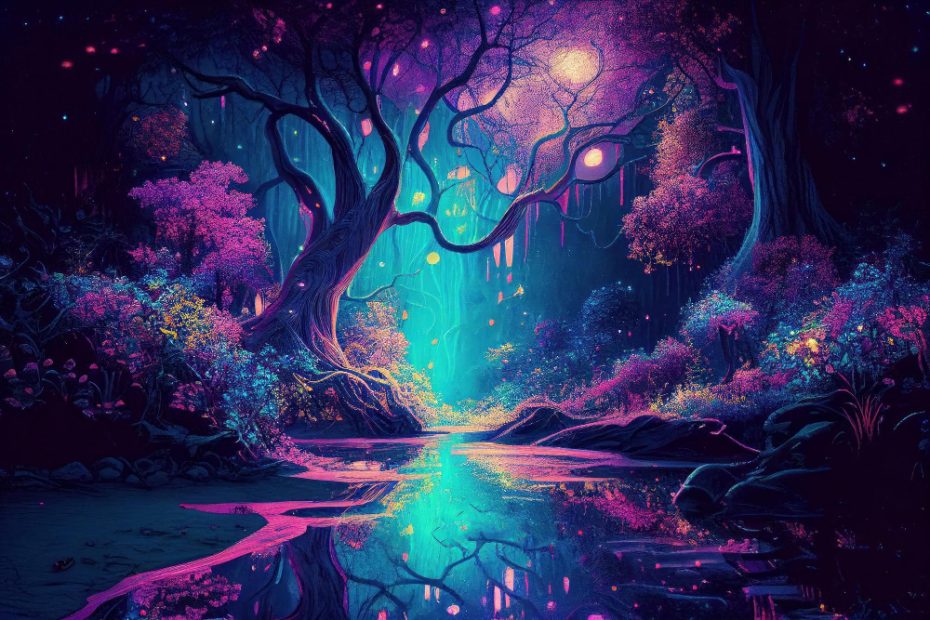Do Dreams Mean Anything Spiritually?
Introduction
Many people have experienced the mysterious and often perplexing world of dreams. From vivid landscapes to strange encounters, dreams have intrigued and fascinated humans for centuries. Throughout history, various cultures and religious beliefs have attributed spiritual significance to dreams, considering them as messages from a higher power or a hidden realm. In this article, we will delve into the topic of whether dreams hold any spiritual meaning and explore different perspectives on this intriguing subject.
The Historical Significance of Dreams
Dreams have played a significant role in various ancient civilizations and religions. For instance, in ancient Egypt, dreams were believed to reveal messages from the gods or the realm of the dead. Egyptians took dreams so seriously that they employed individuals known as “dream interpreters” to decipher their hidden meanings. Similarly, ancient Greeks regarded dreams as insights from the divine, with figures such as Artemidorus writing extensive guides on dream interpretation.
In many indigenous cultures, dreams are considered a way for the spirit world to communicate with the living. Native American tribes, for example, believed that dreams were a means of receiving guidance or warnings from ancestors or animal spirits. Indigenous Australians also attribute spiritual importance to dreams, viewing them as a way to connect with ancestral beings and receive knowledge.
The Spiritual Perspective on Dreams
From a spiritual standpoint, dreams are often seen as a bridge between the conscious and subconscious mind, allowing access to dimensions beyond our ordinary waking experience. Many spiritual traditions believe that dreams can provide insight into one’s soul, past lives, or even glimpse into the future. Some spiritual leaders and practitioners consider dreams as a form of communication with higher beings, spiritual guides, or the universe itself.
Popular spiritual modalities such as astrology, numerology, and tarot also associate dreams with deeper meanings. They suggest that specific dream symbols or themes may carry symbolic messages that can help individuals understand and navigate their spiritual path.
The Psychological Interpretation of Dreams
Psychology offers an alternative perspective on dream interpretation. Sigmund Freud, the father of psychoanalysis, proposed that dreams serve as a window into the unconscious mind. According to Freud, dreams are symbolic representations of repressed desires, unresolved conflicts, and unconscious thoughts. His theory of dream analysis involves interpreting the latent content (hidden meaning) behind the manifest content (what is experienced in the dream), aiming to bring unconscious material to conscious awareness.
Carl Jung, another influential psychologist, emphasized the importance of collective symbolism in dreams. He believed that dreams contain archetypal images and symbols that are shared among humanity and reflect universal themes. Jung saw dreams as a means of individuation and self-discovery, guiding individuals towards integrating their unconscious aspects into their conscious lives.
Interpreting Dreams: A Personal Journey
Dream interpretation is highly subjective and can vary greatly from person to person. While some individuals may find deep spiritual meaning in their dreams, others may view them simply as random products of the brain’s activity during sleep. The way dreams are interpreted can be influenced by one’s cultural background, personal beliefs, and experiences.
It is important to approach dream interpretation with an open mind and a willingness to explore different perspectives. Keeping a dream journal can be beneficial in understanding recurring patterns, symbols, or emotions that may arise during dream states. Sharing dreams with trusted friends or seeking guidance from professionals well-versed in dream analysis, psychology, or spiritual practices can offer valuable insights.
Closing Thoughts
While the exact meaning of dreams in a spiritual sense remains elusive and subjective, they continue to captivate and intrigue individuals across cultures and generations. Whether seen as messages from a higher power, glimpses into the subconscious, or the random firing of neurons, dreams hold a certain fascination that transcends rationality. Exploring and interpreting dreams can provide a deeper understanding of oneself and potentially unlock hidden aspects of the human psyche.
Ultimately, whether dreams hold spiritual meaning or not is a personal journey of exploration and self-discovery. Each individual’s interpretation of their dreams will depend on their worldview, beliefs, and experiences. Regardless of the interpretation, dreams offer us a glimpse into the rich tapestry of the human mind and spirit, inviting us to explore the depths of our consciousness and embrace the mysteries that lie within.
“Dreams are the touchstones of our characters.” – Henry David Thoreau
